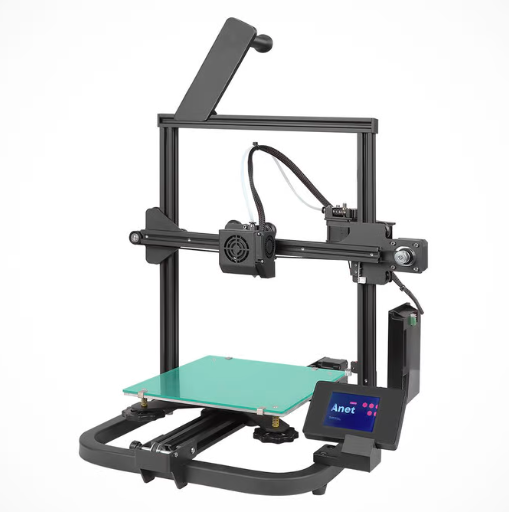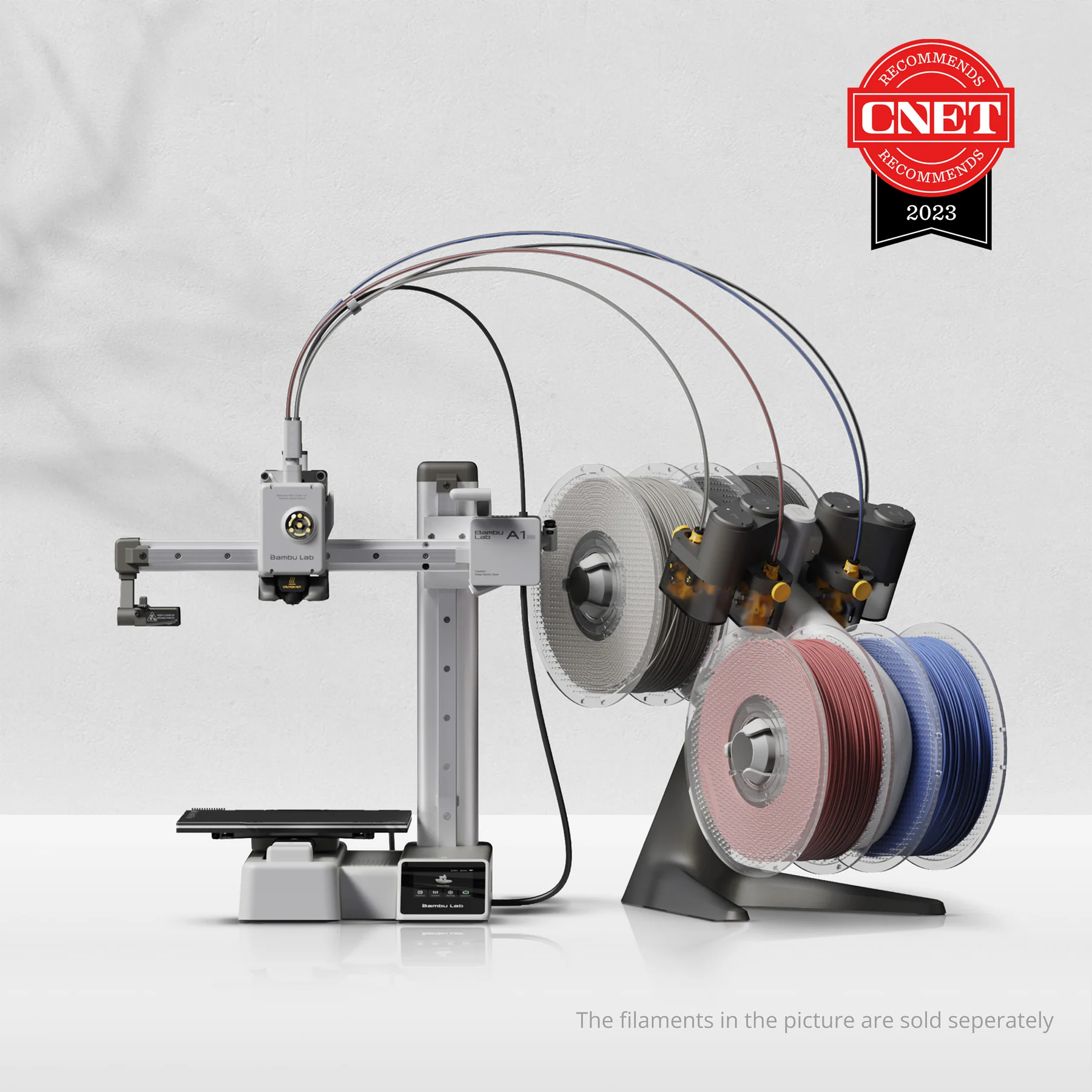Compare A8 V2 vs A1 Mini
Comparison between the best 3D printers
Choose the best 3D printer at the best price. The cheapest 3D printers are here.
Buy a 3D printer here with 3D Fila.
 |
 |
|
| Model | A8 V2 |
A1 Mini |
| Printing Material | Filament | Filament |
| Buy Filament for Anet A8 V2 | Buy Filament forBambu Lab A1 Mini | |
| Estimated price | $129,00 | $549,00 |
| Manufacturer | Anet | Bambu Lab |
| Release Year | 2021 | 2023 |
| Print Volume [mm] | 220x220x250 | 180x180x180 |
| Printer Size [mm] | 428x441x486 | 315x347x365 |
| Weight [kg] | 6,2 | 5,5 |
| Power Loss Recovery | NO | YES |
| Enclosed printer | NO | NO |
| Bed Leveling | Manual | Automatic |
| Filament End Sensor | NO | YES |
| Bed type | Heated | |
| Power supply system | Bowden | Direct Drive |
| Standard nozzle | 0,4 | 0,4 |
| Maximum Nozzle Temperature [°C] | 230 | 300 |
| Maximum Bed Temperature [°C] | 80 | |
| Maximum printing speed [mm/s] | 150 | 500 |
| Filament holder | YES | YES |
| Camera for supervision | NO | NO |
| Recommended filaments | PLA | PLA, PETG, TPU, PVA |
| Recommended slicers | Cura, Simplify, Slic3r, IdeaMaker | Bambu Studio, Super Slicer, Cura, Prusa Slicer, Orca |
| Maximum Resolution [mm] | 0,1 | 0,1 |
| Processor | 32-bit Silenciosa | |
| Display | Display touchscreen 2,8'' | Touchscreen 2,4'' |
| Power Supply | 110/220V / 250W | 150 W |
| Connectivity | SD / USB | Wifi, Bambu bus, Cartão SD |
| Operating systems | Windows, Mac, Linux | Windows, Linux, Macbook |
| Date of registration in the system | 2022-11-10 | 2024-04-10 |
| Release date | 2021 | 2023 |
| Extra features | The Anet A8 V2 is a Cartesian-XZ type 3D printer with a build volume of 220 x 220 x 250 mm, Ender 3 design and V-slot assembly. It has a 32-bit motherboard and touchscreen interface, promising ease of use. It uses open source firmware and has thermal failure protection. It stands out for its cable organization and the absence of a heated bed, focusing on energy savings and PLA printing. It comes with an external power adapter, aiming at greater safety, especially for beginners and educational use. | The Bambu Lab A1 Mini stands out not only for its impressive speed and automatic calibration, but also for its multi-color printing capability thanks to AMS Lite. This innovative system makes multi-color printing easy, making it accessible to everyone. AMS Lite, specific to the A1 Mini, supports up to four different materials simultaneously, providing creative freedom without complications. With comprehensive sensors for energy monitoring and recovery, a camera for timelapses and Wi-Fi control, the A1 Mini and AMS Lite together offer an intuitive and advanced 3D printing experience, ideal for materials such as PLA, PETG and TPU, and designed for simplicity and fast maintenance with quick-change nozzles. |
| Support for multiple colors and materials (AMS and CFS) | NO | YES |
Notes * |
||
| Cost-benefit | 6 / 10 | 7 / 10 |
| Hardware | 0.5 / 10 | 4.2 / 10 |
| Tela | . | . |
| Print volume | 3 / 10 | 3 / 10 |
| Performance | 1 / 10 | 4 / 10 |
Conclusion |
| In conclusion, when comparing the Anet A8 V2 and the Bambu Lab A1 Mini, both 3D printers offer unique features that cater to different user needs. The A8 V2 is notably more affordable, making it a great option for beginners or those on a budget. Its larger print volume, manual bed leveling, and reliability for basic PLA printing can be appealing for educational purposes or simple projects. On the other hand, the Bambu Lab A1 Mini, despite its higher price, offers advanced capabilities such as automatic calibration, faster printing speed, and support for multiple materials, including advanced filaments. Its integrated sensors for power loss recovery and enhanced connectivity (like WiFi) further enhance user experience, positioning it as a suitable choice for more experienced users seeking versatility and efficiency in their 3D printing projects. Ultimately, the decision between the two largely depends on the intended use case: whether one prioritizes cost-effectiveness and basic functionality or seeks high performance and advanced features in a 3D printing experience. |

